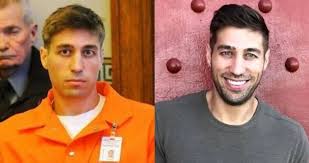Ryan Ferguson, known for his appearance on season 33 of The Amazing Race, experienced a harrowing journey before finding freedom. At just 19 years old, Ferguson was wrongly convicted of the murder of Kent Heitholt, the sports editor of the Columbia Daily Tribune. After nearly a decade behind bars, Ferguson’s innocence was finally proven, shedding light on a case riddled with witness coercion and mishandled prosecution.
The Murder of Kent Heitholt
On November 1, 2001, Kent Heitholt stood talking with coworker Michael Boyd in the parking lot of the Columbia Daily Tribune at 2 a.m. Shawna Ornt, a facilities staff member, spotted two individuals near Heitholt’s car. One of them urgently called for help, prompting Ornt to seek assistance from her supervisor, Jerry Trump, while others dialed 911. Tragically, Heitholt had been mercilessly beaten and strangled to death moments after his conversation with Boyd.
During the arrival of the police, Ornt provided a detailed description of the two men, which became a composite sketch. However, Trump claimed he couldn’t identify the suspects clearly. Despite the presence of fingerprints, footprints, and a strand of hair at the crime scene, the case grew cold.
Two years later, Charles Erickson, who had been partying with Ferguson near the crime scene on Halloween night, saw news coverage of the murder. Erickson started having recurring dreams about the crime, convinced that he and Ferguson were involved. Despite Ferguson’s reassurances that it was impossible, Erickson’s worries escalated, leading him to confess his concerns to friends, who then reported it to the police. In March 2004, both Erickson and Ferguson were arrested. Erickson faced a plea deal in exchange for testifying against Ferguson during the trial.
On the stand, Erickson recounted the crime, but the defense dismantled his claims. Jerry Trump, who had been incarcerated for an unrelated crime in 2003, unexpectedly testified that, while in prison, his wife had sent him a news article that made him recognize the two men. This revelation contradicted Trump’s initial statement, where he had claimed an inability to identify the perpetrators clearly. Additionally, no physical evidence from the scene could be linked to either Erickson or Ferguson. Despite the lack of substantial evidence and unreliable testimony, Ferguson was found guilty of second-degree murder and sentenced to 40 years in prison.
Ryan Ferguson Fights For His Freedom
In 2009, Kathleen Zellner, a prominent attorney, took on Ferguson’s wrongful conviction case. Her work led to a retrial in 2012, during which Trump, Ornt, and Erickson admitted to lying under coercion by prosecutor Kevin Crane. Trump revealed that Crane had given him a newspaper article and Ferguson’s photo, while Ornt and Erickson confessed they were threatened. Zellner decided to call Michael Boyd to the stand, the last person to have seen Heitholt alive, who provided a comprehensive timeline of the night of the murder. Furthermore, Zellner uncovered evidence that had been withheld from the defense team. These revelations led to Ferguson’s conviction being overturned, after serving a quarter of his sentence.
In 2020, Ferguson was awarded $11 million, a million for each year unjustly spent behind bars, including legal costs. The court ruled that the evidence presented during the trial was insufficient to support a conviction against him.
Despite Erickson testifying against Ferguson, he has expressed a desire to assist Erickson, who currently serves a 25-year sentence for the crime, in his pursuit of freedom. Ferguson believes Erickson was manipulated and used, and that he deserves support and assistance.
Ryan Ferguson, now a free man, actively works as a personal trainer and has participated in the MTV series, Unlocking the Truth. Though he initially struggled to find regular work due to his public reputation, Ferguson’s resilient spirit never wavered. Currently, he captivates audiences on the latest season of The Amazing Race, where he openly shares his experience of incarceration and his hope for a brighter future.
If you are as enthralled by Ryan Ferguson’s story as we are, explore more cases of wrongful conviction such as that of Joe Arridy. Or delve into the intriguing tale of Thomas Silverstein, a prisoner who endured 36 years in solitary confinement.
